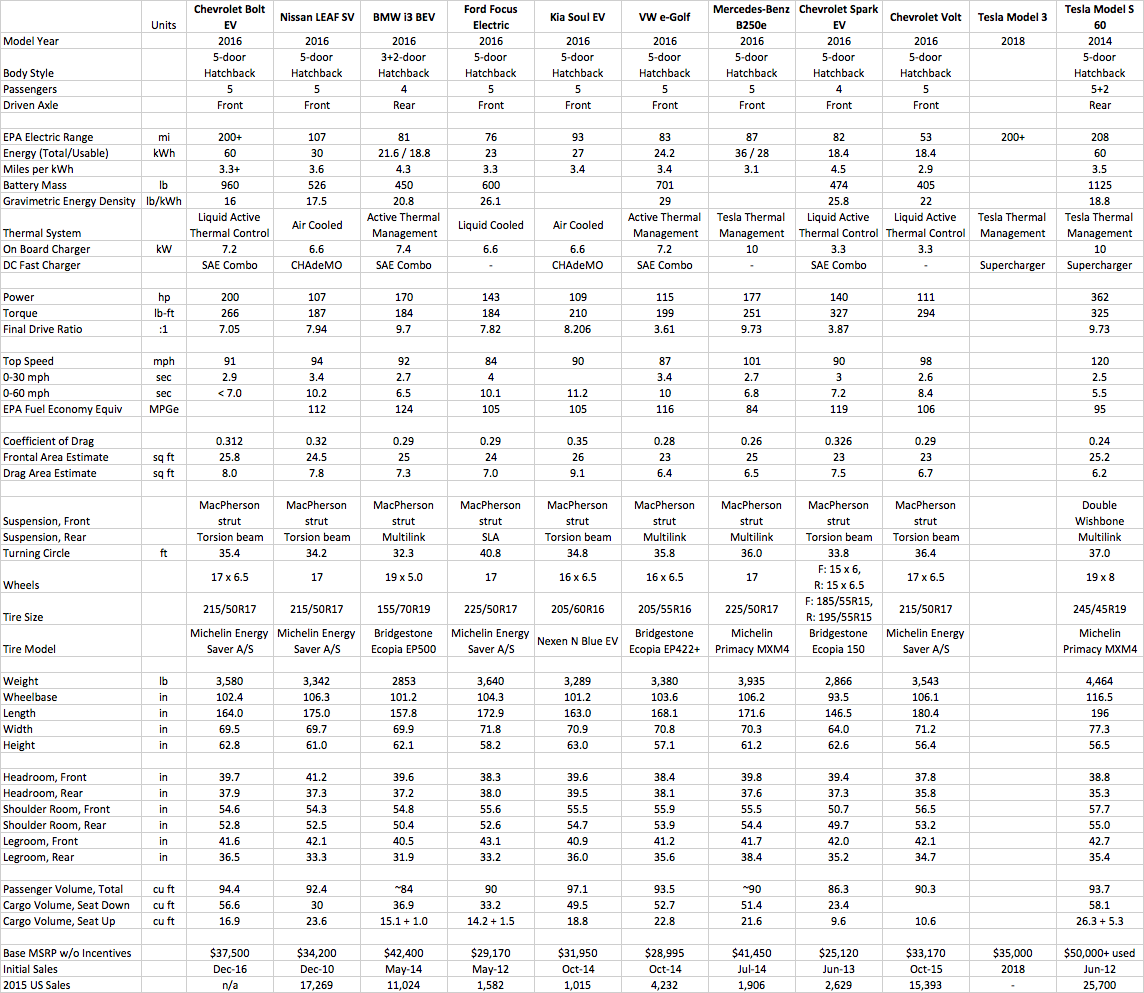I33t said:
[
Efficiency is a prime requirement IMHO.
Otherwise we could build a large, heavy car, fill it with a mass of battery to give it good range (and even more weight) and then have the users consume large amounts of electricity to fuel it for routine suburban use with one driver on board. Yep, like most Tesla S's.
An i3 has the efficiency lead that makes it perfectly possible that someone with solar panels can be a nett exporter of electricity to the grid. It's designed as an urban car, not a highway cruiser. Hopefully, the Bolt will get into that range for owners that don't need the 200 mile range.
I'll be amazed if the Bolt turns out to be anywhere close to the i3 REX.
While efficiency is desirable (who could argue it is not?) I think it is far from the top of reasons to select a particular EV. Even the least efficient EVs (Toyota RAV-4 EV 76 MPGe) is far more efficient than the best ICE or even hybrid.
I believe the most important factor is range, followed by charging availability and time, and then cost. Lack of range and concerns about ability to recharge seem to be the key factors that keep people from considering EVs. I am a committed EVer, having covered 48,000 miles in slightly over two years in an 80-mile class car, and even I am not going to go through that again.
I really don't care if my next car gets 130 or 110 MPGe, I just want to be able to charge at home at night and get through my 100 mile daily drive without worries about cold weather, battery fade, errands, or access to workplace charging. The Bolt seems to offer this, and no 80 or even 100 mile class car does.
Even if the Bolt turns out to not quite equal the MPGe of the I3 Rex while in EV mode, there is no doubt it will be vastly better after the 72-mile mark when the Rex turns into a 39 MPG hybrid.
Incidentally, the primary reason Tesla powered cars (Tesla, Toyota, Mercedes) have lower MPGe than most others is not weight, but rather the fact that Tesla uses AC induction motors rather than permanent magnet motors. Again, nobody can argue weight is good, but it is less harmful to an EV than to an ICE car because at least some of the kinetic energy is recovered when slowing.





















![Electric Spin Scrubber, [IPX7 Waterproof ] [50KG Torque] Shower Scrubber with 9 Brush Heads, 2 Speed Mode, 4 Adjustable Angles, Electric Brush for Cleaning for Bathroom Floor Tile (Gray)](https://m.media-amazon.com/images/I/51R1fR54smL._SL500_.jpg)





























